Three Character Classic : San Zi Jing 三字经
The three character classic introduces many new characters and was learned by heart by children over many centuries in China. It formed the first step towards becoming a scholar and taking the Imperial Examinations. The piece contains many elements of culture and history, following the Confucian doctrine. It is divided into three character groups in blocks of four, 12 characters in each section. The characters follow a rhythmic structure to be spoken out loud by the whole class. It dates from the Song dynasty (around 1280CE) and is attributed to Wang Yinglin ➚ or Ou Shizi ➚. The historical section was updated over the centuries to reflect the rise of new dynasties. The Taipings during their rebellion produced their own version of the classic substituting Christian for Confucian doctrine.
It fell into decline in the twentieth century when new teaching practices were introduced, during the Cultural Revolution it was suppressed along with the other ancient classics. Recently some families have encouraged their children to learn it as a good basic language primer.
The most common English translation seen on the Internet and in books is the one written by the English Chinese scholar Herbert Giles ➚ dating from 1910. To a modern audience this translation seems old-fashioned and so we have provided a new translation that in places is closer to the original and avoids archaic English terms that are not well understood. The classic was intended for boys only, in places I have watered down the rather negative tone towards girls and women that was prevalent when it was written.
The three character classic consists of a number of sections: importance of learning; basics of numbers and nature; moral code; learning the classics; a comprehensive dynastic history and further examples and admonishment of the need to study hard. It is carefully written to introduce frequently used characters that are useful in everyday life.
人之初rén zhī chū,
性本善xìng běn shàn,People are born good natured.
性相近xìng xiāng jìn,
习相远xí xiāng yuǎn.Their characters are similar but develop differently.
苟不教gǒu bù jiāo,
性乃迁xìng nǎi qiān,If not taught, their nature changes
教之道jiāo zhī dào,
贵以专guì yǐ zhuān.The principle to be taught is that total concentration is needed.
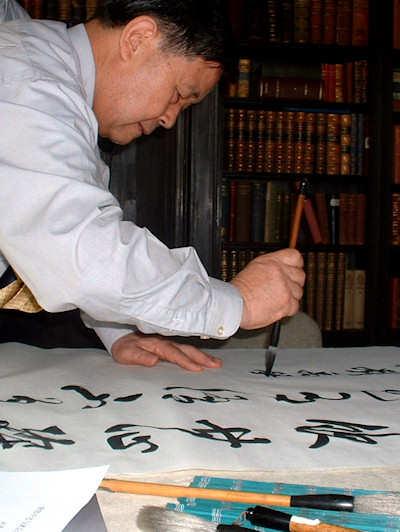
昔孟母xī mèng mǔ,
择邻处zé lín chù,When Mencius's mother chose a home
子不学zǐ bù xué,
断机杼duàn jī zhù.Her son did not learn so she broke her loom.
窦燕山dòu yàn shān,
有义方yǒu yì fāng,Dou of Yanshan had the correct method
教五子jiāo wǔ zǐ,
名俱扬míng jù yáng.He taught five sons, all raised the family's prestige.
养不教yǎng bù jiāo,
父之过fù zhī guò,To nurture without teaching is the father's fault
教不严jiāo bù yán,
师之惰shī zhī duò.To not teach sternly is the teacher's laziness.
子不学zǐ bù xué,
非所宜fēi suǒ yí,For a child to neglect study is inappropriate
幼不学yòu bù xué,
老何为lǎo hé wéi.If he does not study when young, what will he become when old?
玉不琢yù bù zhuó,
不成器bù chéng qì,Jade that is not fashioned is of no use.
不知义bù zhī yì.People who have not studied, cannot know honor
为人子wéi rén zǐ,
方少时fāng shǎo shí,A child must behave honestly when young.
亲师友qīn shī yǒu,
习礼仪xí lǐ yí.Learn from parents and teachers to study good manners.
香九龄xiāng jiǔ líng,
能温席néng wēn xíXiang aged nine would warm (his parent's) bed
孝于亲xiào yú qīn,
所当执suǒ dāng zhí.Respect for parents ought to be observed.
融四岁róng sì suì,
能让梨néng ràng lí,Rong aged four gave up the (larger) pears
弟于长dì yú zhǎng,
宜先知yí xiān zhī.Act as a junior to an elder, should be the foremost thing to know.
首孝弟shǒu xiào dì,
次见闻cì jiàn wén,Start with due obedience; next is knowledge
知某数zhī mǒu shù,
识某文shí mǒu wén.Know the numbers, know some culture.
一而十yī ér shí,
十而百shí ér bǎi,One and so to ten, ten and so to a hundred
百而千bǎi ér qiān,
千而万qiān ér wàn.A hundred and so to a thousand, One thousand and so on to Ten thousand.
三才者sān cái zhě,
天地人tiān dì rén,The three powers are Heaven, Earth and People
三光者sān guāng zhě,
日月星rì yuè xīng.The three lights are the sun, moon and stars.
三者sān gāng zhě,
君臣义jūn chén yì,The three guiding principles are justice of the ruler
父子亲fù zǐ qīn,
夫妇顺fū fù shùn.Love for father, wife follows husband.
曰春夏yuē chūn xià,
曰秋冬yuē qiū dōng,Of spring and summer, of autumn and winter
此四时cǐ sì shí,
运不穷yùn bù qióng.The seasons march on endlessly.
曰南北yuē nán běi,
曰西东yuē xī dōng,Of north and south, of west and east
此四方cǐ sì fāng,
应乎中yìng hū zhōng.All directions depend on the center.
曰水火yuē shuǐ huǒ,
木金土mù jīn tǔ,Of water and fire, wood, metal and earth
此五行cǐ wǔ xíng,
本乎数běn hū shù.These five elements originate in numbers.
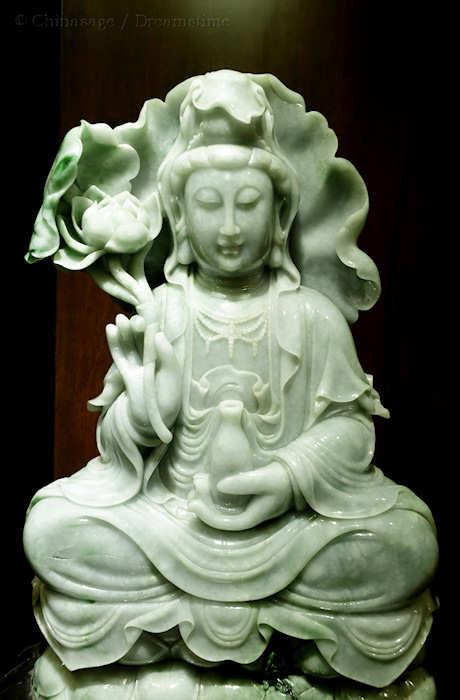
曰仁义yuē rén yì,
礼智信lǐ zhì xìn,Of benevolence and honor, courtesy, wisdom and truth
此五常cǐ wǔ cháng,
不容紊bù róng wěn.These five virtues must not fall into disarray.
稻粱菽dào liáng shū,
麦黍稷mài shǔ jì,Rice, fine millet, beans, wheat, glutinous millet and common millet
此六谷cǐ liù gǔ,
人所食rén suǒ shí.These six grains are what people eat.
马牛羊mǎ niú yáng,
鸡犬豕jī quǎn shǐHorses, cattle, sheep, fowl, dogs and pigs
此六畜cǐ liù chù,
人所饲rén suǒ sì.These six animals are reared by people.
曰喜怒yuē xǐ nù,
曰哀惧yuē āi jù,Of joy and anger, of sorrow and fear
爱恶欲ài è yù,
七情具qī qíng jù.Love, evil and desire. These are the seven emotions.
匏土革páo tǔ gé,
木石金mù shí jīn,Gourd, clay, leather, wood, stone, metal
与丝竹yǔ sī zhú,
乃八音nǎi bā yīn.Together with silk and bamboo make the eight musical instruments.
高曾祖gāo zēng zǔ,
父而身fù ér shēn,Great-great grandfather, great grandfather, grandfather, father as well as myself
身而子shēn ér zǐ,
子而孙zǐ ér sūn.Myself and child, child as well as grandchild.
自子孙zì zǐ sūn,
至元曾zhì yuán zēng,From child, grandchild to great-grandchild
乃九族nǎi jiǔ zú,
人之伦rén zhī lún.These nine generations form the family relationships.
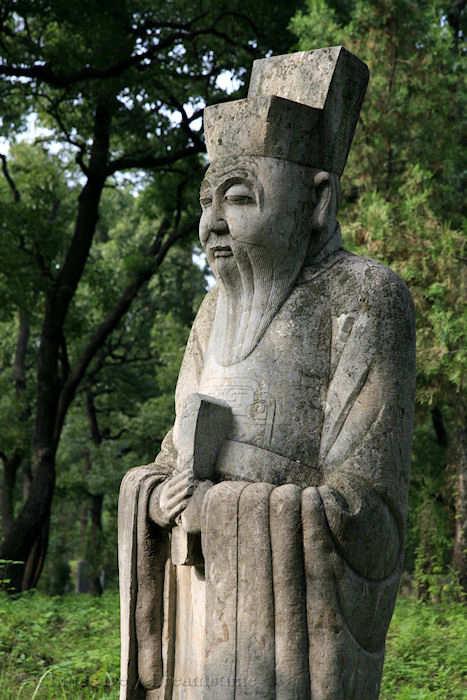
父子恩fù zǐ ēn,
夫妇从fū fù cóng,Kindness between father and child, Wife following husband
兄则友xiōng zé yǒu,
弟则恭dì zé gōng.Friendship from elder brothers, respect from younger brothers.
长幼序zhǎng yòu xù,
友与朋yǒu yǔ péng,Older and younger in order, friend with friend
君则敬jūn zé jìng,
臣则忠chén zé zhōng.Respect from rulers, loyalty from the people.
此十义cǐ shí yì,
人所同rén suǒ tóng.These ten obligations are common to all people.
凡训蒙fán xùn méng,
须讲究xū jiǎng jiū,When teaching the ignorant, they must pay particular attention
详训诂xiáng xùn gǔ,
明句读míng jù dòu.Painstakingly study the classics, understand the structure.
为学者wéi xué zhě,
必有初bì yǒu chū,Those who wish to become scholars, must have a beginning.
小学终xiǎo xué zhōng,
至四书zhì sì shū.When primary schooling is completed, go on to the Four Classics.
论语者lún yǔ zhě,
二十篇èr shí piān,The Analects of Kongfuzi, in twenty chapters.
群弟子qún dì zǐ,
记善言jì shàn yán.Where the group of followers recorded wise sayings.
孟子者mèng zǐ zhě,
七篇止qī piān zhǐ,Works of Mencius, seven chapters only
讲道德jiǎng dào dé,
说仁义shuō rén yì.Preach the way to virtue, explain honor.
作中庸zuòzhōng yōng,
乃孔伋nǎi kǒng jí,The writing of the ‘Doctrine of the Mean’ by Kong Ji
中不偏zhōng bù piān,
庸不易yōng bù yì.The center does not stray from the intended line, the course is unchanging.
作大学zuò dà xué,
乃曾子nǎi zēng zǐ,The writer of the Great Learning, was Zengzi
自修齐zì xiū qí,
至平治zhì píng zhì.To its study will ensure all will attain peaceful government.
孝经通xiào jīng tōng,
四书熟sì shū shú,When the ‘Classic of Filial Piety’ is well understood and also familiar with the Four Classics,
如六经rú liù jīng,
始可读shǐ kě dú.the Six Classics can then be read.
诗书易shī shū yì,
礼春秋lǐ chūn qiū,The books of Poetry, History, Changes, Rites, Rites of Zhou and the Spring and Autumn Annals
号六经hào liù jīng,
当讲求dāng jiǎng qiú.Number the ‘Six Classics’ which should be thoroughly understood.
有连山yǒu lián shān,
有归藏yǒu guī cáng,There is Lianshan, there is Guicang
有周易yǒu zhōu yì,
三易详sān yì xiáng.There is Zhouyi, a comprehensive analysis of the Book of Changes.
有典谟yǒu diǎn mó,
有训诰yǒu xùn gào,There are laws and plans; there are patterns and admonishments
有誓命yǒu shì mìng,
书之奥shū zhī ào.There are vows and orders; and mysteries in the Book of History.
我周公wǒ zhōu gōng,
作周礼zuò zhōu lǐ,Our Duke of Zhou wrote the Rites of Zhou
著六官zhù liù guān,
存治体cún zhì tǐ.Showing the six classes of officials which manage the government.
大小戴dà xiǎo dài,
注礼记zhù lǐ jì,The Elder and Younger Dai commented on the Book of Rites
述圣言shù shèng yán,
礼乐备lǐ lè bèi.They relate the sacred words and order ceremonies and music.
曰国风yuē guó fēng,
曰雅颂yuē yǎ sòng,They speak of the customs of nations; they speak of the Odes and Songs
号四诗hào sì shī,
当讽咏dāng fěng yǒng.Four parts of the Book of Poetry, should be recited and sung.
诗既亡shī jì wáng,
春秋作chūn qiū zuò,When the Book of Poetry had been finished, the Spring and Autumn Annals were written.
寓褒贬yù bāo biǎn,
别善恶bié shàn è.They contain assessments and distinguish good from evil.
三传者sān zhuàn zhě,
有公羊yǒu gōng yáng,These three commentaries were by Gong Yang
有左氏yǒu zuǒ shì,
有谷梁yǒu gǔ liáng.That of Zuo Shi, and that of Gu Liang.
经既明jīng jì míng,
方读子fāng dú zǐ,When the Classics are understood, only then read the philosophers
撮其要cuō qí yào,
记其事jì qí shì.Pick out the important parts, remember the facts.
五子者wǔ zǐ zhě,
有荀杨yǒu xún yáng,The five philosophers: there is Xun and Yang
文中子wén zhōng zǐ,
及老庄jí lǎo zhuāng.Wen Zhongzi, Laozi and Zhuangzi.
经子通jīng zǐ tōng,
读诸史dú zhū shǐ,When the classics and philosophers are well known, read all the histories
考世系kǎo shì xì,
知终始zhī zhōng shǐ.Examine the lineages, know the starts and ends.
自羲农zì xī nóng,
至黄帝zhì huáng dì,From Emperor Xi and Nong to Huangdi
号三皇hào sān huáng,
居上世jū shàng shì.Number the Three Sovereigns who lived long ago.
唐有虞táng yǒu yú,
号二帝hào èr dì,There were Tang and Yu, called the Two Emperors
称盛世chēng shèng shì.One yielded to the other, in an age of Prosperity.
夏有禹xià yǒu yǔ,
商有汤shāng yǒu tāngXia dynasty had Yu, the Shang dynasty had Tang
周文武zhōu wén wǔ,
称三王chēng sān wáng.The Xia dynasty had Wen and Wu, named the Three Kings.
夏传子xià chuán zǐ,
家天下jiā tiān xiàThe Xia passed from father to son, a family ruling the whole world
四百载sì bǎi zǎi,
迁夏社qiān xià shè.After 400 years, the Xia dynasty ended.
汤伐夏tāng fá xià,
国号商guó hào shāngTang brought down the Xia, forming the Shang dynasty
六百载liù bǎi zǎi,
至纣亡zhì zhòu wáng.It lasted 600 years, until King Zhou.
周武王zhōu wǔ wáng,
始诛纣shǐ zhū zhòuKing Wu of Zhou dynasty slew King Zhou
八百载bā bǎi zǎi,
最长久zuì cháng jiǔ.800 years long, the longest dynasty.
周辙东zhōu zhé dōng,
王堕wáng gāng duòWhen the Zhou made forays east, the king's rule waned
逞干戈chěng gān gē,
尚游说shàng yóu shuì.They gave way to weapons of war, yet ideas were promulgated among the rulers.
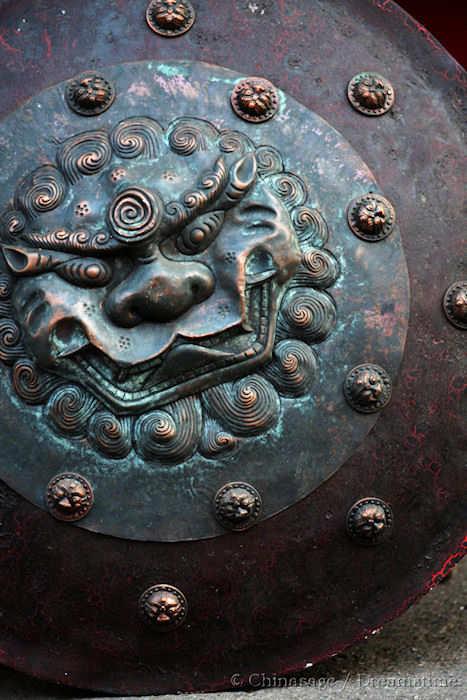
始春秋shǐ chūn qiū,
终战国zhōng zhàn guóBegan with the Spring and Autumn period, ended with the Warring States period
五霸强wǔ bà qiáng,
七雄出qī xióng chū.Five powerful lords ruled, seven mighty states arose.
嬴秦氏yíng qín shì,
始兼并shǐ jiān bìngThe Ying of the Qin kingdom, began to annex the country
传二世chuán èr shì,
楚汉争chǔ hàn zhēng.Passed to Er Shi, Chu and Han states vied for power.
高祖兴gāo zǔ xìng,
汉业建hàn yè jiànEmperor Gaozu arose, the Han dynasty founded
至孝平zhì xiào píng,
王莽篡wáng mǎng cuàn.Until the reign of Xiaoping when Wang Mang usurped the throne.
光武兴guāng wǔ xìng,
为东汉wéi dōng hànEmperor Guangwu arose and created the Eastern Han dynasty
四百年sì bǎi nián,
终于献zhōng yú xiàn.Four hundred years of rule ended with Emperor Xian.
魏蜀吴wèi shǔ wú,
争汉鼎zhēng hàn dǐngWei, Shu and Wu vied for the Han prize
号三国hào sān guó,
迄两晋qì liǎng jìn.Called the Three Kingdoms until two Jin dynasties.
宋齐继sòng qí jì,
梁陈承liáng chén chéngSong and Qi followed, Liang and Chen continued
为南朝wéi nán cháo,
都金陵dū jīn líng.These are the Southern dynasties, capital at Jinling.
北元魏běi yuán wèi,
分东西fēn dōng xīIn the north Yuan Wei split into east and west
宇文周yǔ wén zhōu,
兴高齐xìng gāo qí.Yu Wen of Zhou, arose with Gao of Qi.
迨至隋dài zhì suí,
一土宇yī tǔ yǔAt last arrive at the Sui dynasty as one united land
不再传bù zài chuán,
失统绪shī tǒng xù.But power was not passed on, it lost control.
唐高祖táng gāo zǔ,
起义师qǐ yì shīTang Emperor Gaozu formed a military uprising
除隋乱chú suí luàn,
创国基chuàng guó jī.Eliminated Sui disorder, consolidated national rule.
二十传èr shí chuán,
三百载sān bǎi zǎiTwenty times rule passed on, in 300 years
梁灭之liáng miè zhī,
国乃改guó nǎi gǎi.Liang extinguished it, the country thereupon changed.
梁唐晋liáng táng jìn,
及汉周jí hàn zhōuLiang, Tang, Jin and Han, Zhou
称五代chēng wǔ dài,
皆有由jiē yǒu yóu.Named the Five Dynasties, each followed its own destiny.
炎宋兴yán sòng xìng,
受周禅shòu zhōu chánThe fiery Song arose, receiving the abdication of the Zhou
十八传shí bā chuán,
南北混nán běi hùn.Eighteen times rule passed on, north and south muddled along separately.
辽与金liáo yǔ jīn,
皆称帝jiē chēng dìLiao and Jing – both are called dynasties
元灭金yuán miè jīn,
绝宋世jué sòng shì.Yuan wiped out Jin, cut short the Song dynasty.
舆图广yú tú guǎng,
超前代chāo qián dàiThe map of territory vast, surpassing previous dynasties
九十年jiǔ shí nián,
国祚废guó zuò fèi.90 years pass, the throne is ousted.
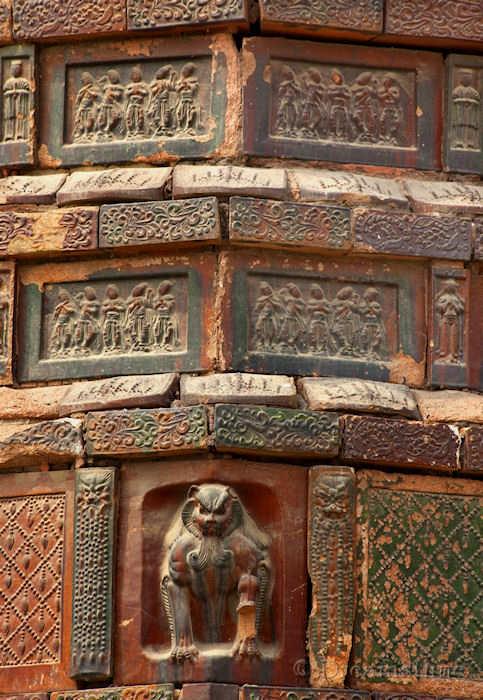
太祖兴tài zǔ xìng,
国大明guó dà míngEmperor Taizu arose, the great nation of Ming
号洪武hào hóng wǔ,
都金陵dū jīn líng.called himself Hongwu with capital at Jinling.
迨成祖dài chéng zǔ,
迁燕京qiān yàn jīngUntil Emperor Chengzu moved the capital to Yanjing
十六世shí liù shì,
至崇祯zhì chóng zhēn.Sixteen generations until Emperor Chongzhen.
权阉肆quán yān sì,
寇如林kòu rú línThe power of eunuchs unrestrained, plundered like so many trees in a forest
李闯出lǐ chuǎng chū,
神器焚shén qì fén.Li Chuang came, burnt holy objects.
清世祖qīng shì zǔ,
应景命yìng jǐng mìngQing dynasty's ancestor responded to the call of fate
靖四方jìng sì fāng,
克大定kè dà dìng.Peace was everywhere, establishing great stability.
古今史gǔ jīn shǐ,
全在兹quán zài zīThe ancient and modern annals all completed.
载治乱zài zhì luàn,
知兴衰zhī xīng shuāi.They record control and disorder, document the rise and fall.
读史书dú shǐ shū,
考实录kǎo shí lùStudy the history books, examine the true records.
通古今tōng gǔ jīn,
若亲目ruò qīn mù.Know the ancient and modern, as if a first-hand witness.
口而诵kǒu ér sòng,
心而惟xīn ér wéiMouth as well as recite them, study intention as well as action
朝于斯zhāo yú sī,
夕于斯xī yú sī.Do this in the morning, do this in the evening.
昔仲尼xī zhòng ní,
师项橐shī xiàng tuóFormerly Zhongni had Xiang Tuo as teacher
古圣贤gǔ shèng xián,
尚勤学shàng qín xué.Ancient virtuous sages valued diligent study.
赵中令zhào zhòng lìng,
读鲁论dú lǔ lùnZhao, the Grand Secretary studied the Analects
彼既仕bǐ jì shì,
学且勤xué qiě qín.Although already an official, he still studied industriously.
披蒲编pī pú biān,
削竹简xiāo zhú jiǎnSplitting up reeds and weaving them, cutting bamboo for writing
彼无书bǐ wú shū,
且知勉qiě zhī miǎn.They had no books but still knew how to make an effort.
头悬梁tóu xuán liáng,
锥刺股zhuī cì gǔOne suspended his head from a roof beam, another pricked his thigh with an awl
彼不教bǐ bù jiāo,
自勤苦zì qín kǔ.They were not taught these ways but devised them from a desire for hard work.
如囊萤rú náng yíng,
如映雪rú yìng xuěOne put glow-worms in a bag; another used the reflection from snow to read by
家虽贫jiā suī pín,
学不辍xué bù chuò.Their homes were poor, yet they studied incessantly.
如负薪rú fù xīn,
如挂角rú guà jiǎoOne carried firewood, another hung [books] from horns [to read]
身虽劳shēn suī láo,
犹苦卓yóu kǔ zhuó.Even though they were exhausted, they achieved acclaim through hardship.
苏老泉sū lǎo quán,
二十七èr shí qīSu Laoquan at 27
始发愤shǐ fā fèn,
读书籍dú shū jí.Began to make a determined effort to study books.
彼既老bǐ jì lǎo,
犹悔迟yóu huǐ chíWhen he was old he regretted his delay
尔小生ěr xiǎo shēng,
宜早思yí zǎo sī.You, the young student should set about early study.
若梁灏ruò liáng hào,
八十二bā shí èrAs Liang Hao aged 82
对大廷duì dà tíng,
魁多士kuí duō shì.Went to the Great Hall and was acclaimed the foremost student.
彼既成bǐ jì chéng,
众称异zhòng chēng yìAfter that had been accomplished many praised his exceptional talent.
尔小生ěr xiǎo shēng,
宜立志yí lì zhì.You, the young student should be similarly determined.
莹八岁yíng bā suì,
能咏诗néng yǒng shīYing when eight years old was able to write poetry
泌七岁mì qī suì,
能赋棋néng fù qí.Mi when seven years old could write about Weiqi.
彼颖悟bǐ yǐng wù,
人称奇rén chēng qíThey were intelligent and called wonderful.
尔幼学ěr yòu xué,
当效之dāng xiào zhī.You, the young student ought to emulate them.
蔡文姬cài wén jī,
能辨琴néng biàn qínCai Wenji could analyze the music of the qin
谢道韫xiè dào yùn,
能咏吟néng yǒng yín.Xie Daoyun could compose poems.
彼女子bǐ nǔ: zǐ,
且聪敏qiě cōng mǐnThey were girls and moreover clever
尔男子ěr nán zǐ,
当自警dāng zì jǐng.You boys should stay attentive.
唐刘晏táng liú yàn,
方七岁fāng qī suìTang dynasty Liu Yan when only seven years old
举神童jǔ shén tóng,
作正字zuò zhèng zì.Was held up as a child prodigy and became Corrector of Writings.
彼虽幼bǐ suī yòu,
身已仕shēn yǐ shìEven though a child he served as an official
尔幼学ěr yòu xué,
勉而致miǎn ér zhì.You, the young student should make an effort and devote yourself to study.
有为者yǒu wéi zhě,
亦若是yì ruò shì.Those who show promise will surely succeed as they did.
犬守夜quǎn shǒu yè,
鸡司晨jī sī chénDogs guard the night; cockerels proclaim the dawn
苟不学gǒu bù xué,
曷为人hé wéi rén.If negligently you do not study, how can you learn to conduct yourself?
蚕吐丝cán tǔ sī,
蜂酿蜜fēng niàng mìThe silkworm produces silk; the bee makes honey
人不学rén bù xué,
不如物bù rú wù.People who do not study are no better than inanimate things.
幼而学yòu ér xué,
壮而行zhuàng ér xíngStudy when young to become competent when you grow up
上致君shàng zhì jūn,
下泽民xià zé mín.Be devoted to the ruler above, benefit the people below.
扬名声yáng míng shēng,
显父母xiǎn fù mǔBecome a great voice, bring honor to your parents
光于前guāng yú qián,
裕于后yù yú hòu.Shed luster upon your ancestors, bring abundance to your descendents.
人遗子rén yí zǐ,
金满嬴jīn mǎn yíngPeople bequeath copious profit in gold
我教子wǒ jiào zǐ,
惟一经wéi yī jīng.I teach my children only one classic.
勤有功qín yǒu gōng,
戏无益xì wú yìDiligence brings achievement, play has no benefit
戒之哉jiè zhī zāi,
宜勉力yí miǎn lì.Guard against it, strive forward positively.
Many young children have learned the classic and you can see videos of them.